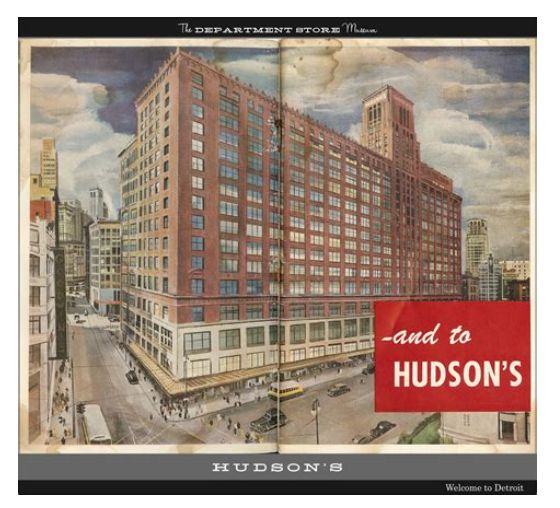In the late 19th century, against the backdrop of a burgeoning Detroit, entrepreneur James L. Hudson founded what would become a retail giant – the J.L. Hudson Company. Established in 1881, the modest beginnings of the “Detroit Beehive,” a small men’s and boy’s clothing store, laid the foundation for a retail empire that would play a crucial role in the city’s history.
Hudson’s early success was attributed to a commitment to quality merchandise and exceptional customer service. As Detroit’s population swelled with the promise of industrialization, so did the popularity of Hudson’s store. The turn of the century marked a pivotal moment with the devastating fire of the original store in 1911. However, Hudson’s emerged from the ashes, unveiling a new and larger flagship store in 1912.
Over the next few decades, Hudson’s evolved into a full-scale department store, expanding its product offerings and introducing innovative concepts. Notably, in 1936, Hudson’s revolutionized the retail experience by introducing the first shopping carts, a practical invention that would become a staple in supermarkets and department stores across the country.
The post-World War II era brought unparalleled growth to Detroit, and Hudson’s stood at the forefront of this prosperity. The downtown Detroit store, iconic and grand, became the second-largest department store in the United States. Known not only for its extensive product selection but also for hosting special events and elaborate window displays, Hudson’s played an integral role in shaping the retail landscape of Detroit.
One of the most beloved traditions associated with Hudson’s was the arrival of Santa Claus on the rooftop. This annual event drew families from across the region and became a cherished part of Detroit’s holiday celebrations. The downtown Detroit store became a symbol of the city’s vitality and a testament to the success of Hudson’s in capturing the spirit of its community.
However, as the 1970s approached, economic challenges loomed over Detroit. The city faced a decline in population, and the rise of suburban shopping malls posed a threat to traditional downtown department stores. In 1983, facing financial difficulties, J.L. Hudson Company was acquired by the Dayton Corporation, signaling the end of an era.
The closure of the flagship Detroit store in 1983 marked a somber chapter in the history of J.L. Hudson’s. Despite the challenges, the legacy of Hudson’s endures in the memories of those who shopped there and in the broader narrative of Detroit’s history. The impact of this retail giant, from its humble beginnings to its grandeur, continues to be felt in the nostalgia and conversations about a bygone era, reminding us of the profound role it played in shaping the retail landscape of Detroit before the 1950s.


